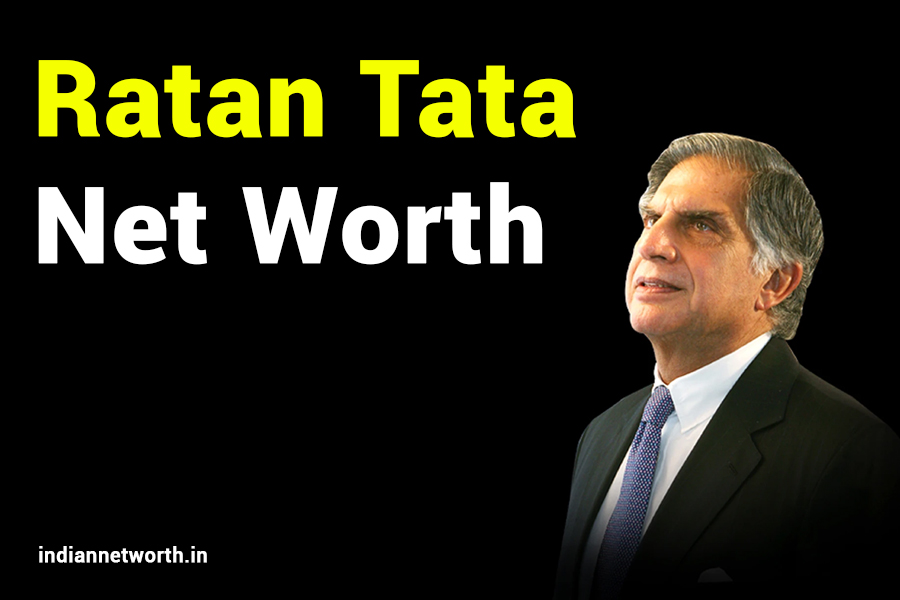Ratan Tata has long been a symbol of Indian entrepreneurship and philanthropy, representing a remarkable legacy of innovation and social responsibility. Born on December 28, 1937, he took over the Tata Group in 1991, transforming it into one of the largest and most respected conglomerates in India and across the globe. Known for his strategic vision and unwavering commitment to ethical business practices, Tata’s influence extends far beyond traditional business metrics and financial gains. As we look ahead to 2025, understanding his net worth becomes essential for grasping both his personal achievements and the significant impact of his endeavors on the broader economic landscape, including job creation and sustainable development.
What is Ratan Tata’s Total Net Worth in 2025?
What is Ratan Tata’s total net worth in 2025?
As of 2025, Ratan Tata’s net worth is estimated to be around $1 billion. This substantial wealth primarily stems from his significant shareholdings in various Tata companies, which have consistently performed well over the years. Additionally, he has made strategic investments in other ventures, further contributing to his financial portfolio and overall net worth.
Background on Ratan Tata
Ratan Tata grew up in an affluent family that emphasized the importance of education and hard work. He pursued his studies at the prestigious Harvard University, where he honed his business acumen. In 1961, he joined the Tata Group, a leading conglomerate in India, and steadily climbed the corporate ladder through determination and innovative thinking. By 1991, he became the chairman, and under his visionary leadership, the Tata Group experienced remarkable expansion, including the strategic acquisition of major global brands such as Jaguar Land Rover and Corus Steel, significantly enhancing the company’s international presence.
Early Life and Education
Ratan Tata’s upbringing played a critical role in shaping his views on business and philanthropy. His diverse experiences during his formative years provided a unique perspective that would inform his approach to business and leadership. Ratan studied at the prestigious Campion School in Mumbai and later attended the renowned Cathedral and John Connon School, where he developed a strong foundation in academics. He completed his undergraduate studies in Architecture with Structural Engineering from Cornell University, an experience that honed his analytical skills. He furthered his education with the Advanced Management Program at Harvard Business School, equipping him with vital insights into effective business management.
Career Milestones
Ratan Tata’s illustrious career milestones are marked by transformative decisions and strategic acquisitions that have significantly shaped the Tata Group and the Indian business landscape. In 1991, he took on the pivotal role of Chairman of Tata Group, steering the conglomerate into new realms of innovation and growth. In 2000, he oversaw the launch of Tata Indica, which became India’s first passenger car developed by a national company, revolutionizing the automotive sector. In 2008, he led the successful acquisition of Jaguar Land Rover from Ford, expanding Tata’s global footprint. That same year, he also launched the Tata Nano, which was widely promoted as the world’s cheapest car, aiming to make car ownership accessible to a broader audience. Although he officially retired as Chairman in 2012, Ratan Tata remains an influential figure in the business world, actively engaging through investments and mentorship roles that inspire the next generation of entrepreneurs.
Ratan Tata’s Wealth Sources
Ratan Tata’s wealth is derived from various sources that can be categorized into different segments:
1. Tata Group Holdings
Ratan Tata holds significant shares in Tata Sons, the holding company of Tata Group. The Tata Group operates in multiple sectors including:
| Sector | Notable Companies |
|---|---|
| Automobiles | Tata Motors, Jaguar Land Rover |
| IT Services | Tata Consultancy Services (TCS) |
| Steel | Tata Steel |
| Hospitality | Taj Hotels |
| Telecommunications | Tata Communications |
2. Investments
Ratan Tata has made numerous investments in startups and emerging businesses, contributing to his financial portfolio:
| Year | Investment | Description |
|---|---|---|
| 2015 | Ola | Investment in ride-sharing service |
| 2017 | Snapdeal | Investment in e-commerce platform |
| 2020 | Paytm | Investment in financial technology |
| 2021 | Zomato | Investment in food delivery service |
3. Philanthropy
Apart from his significant contributions to the business realm, Ratan Tata dedicates a substantial portion of his wealth to various charitable causes. Through influential entities such as the Tata Trusts, he actively supports initiatives focused on healthcare, education, and rural development, aiming to uplift marginalized communities and foster sustainable growth.
| Trust Name | Focus Area |
|---|---|
| Tata Trusts | Community Development |
| Sir Dorabji Tata Trust | Education and Healthcare |
| Jamsetji Tata Trust | Research and Innovation |
Ratan Tata’s Net Worth Over the Years
Understanding how Ratan Tata’s wealth has changed over time paints a clearer picture. Here’s how his estimated net worth has varied:
| Year | Estimated Net Worth (in billion USD) |
|---|---|
| 2015 | 1.0 |
| 2016 | 1.0 |
| 2017 | 1.0 |
| 2018 | 1.2 |
| 2019 | 1.3 |
| 2020 | 1.0 |
| 2021 | 1.0 |
| 2022 | 1.2 |
| 2023 | 1.0 |
| 2024 | 1.0 |
| 2025 | 1.0 |
Ratan Tata’s net worth has remained relatively stable, reflecting his steady investments and continued involvement with the Tata Group.
Philanthropy and Social Impact
Beyond financials, Ratan Tata’s legacy is profoundly intertwined with philanthropy and social responsibility. The Tata Trusts administer over 66% of the total equity of Tata Sons, ensuring that a significant portion of profits is directed towards funding transformative social causes rather than being distributed to shareholders. Signature initiatives include healthcare programs, educational institutions, and rural development projects that uplift communities across India.
Education Initiatives
Ratan Tata emphasizes education as a key area for social investment. The Tata Trusts fund scholarships and educational institutions that reach underprivileged sections of society.
Healthcare Outreach
The Tata Group runs various healthcare institutions, focusing on accessible healthcare for marginalized communities. These efforts range from building hospitals to funding innovative medical research.
Rural Development
Tata’s initiatives aim to improve the quality of life in rural areas through sustainable practices, focusing on agriculture, water management, and women’s empowerment.
Business Philosophy of Ratan Tata
Ratan Tata’s business philosophy marries ethical conduct with sustained growth. His focus on innovation, social responsibility, and governance informs his decision-making. Key aspects of his approach include:
Innovation-Driven Growth
He advocates for innovation as the backbone of competitive advantage. The launch of products like the Tata Nano exemplifies this ethos and reinforces the importance of understanding customer needs.
Ethical Business Practices
Tata is widely recognized for its unwavering commitment to maintaining high ethical standards, consistently prioritizing the welfare of both employees and business partners. This dedication is clearly reflected in the Tata Code of Conduct, which serves as a comprehensive governance framework that outlines the ethical principles guiding all of its diverse business operations.
Global Perspective
Ratan Tata is a strong advocate for global thinking, actively promoting the idea of taking Indian brands into international markets. His strategic acquisitions and partnerships not only highlight this ambitious vision but also enable Tata to effectively tap into emerging markets and innovative technologies, fostering growth and enhancing the global presence of Indian enterprises.
Key Challenges and Future Outlook
Challenges
While Ratan Tata’s net worth and influence remain significant, he faces challenges that shape the trajectory of the Tata Group:
Market Competition: The automotive and IT sectors are fiercely competitive, with numerous companies striving for dominance, which requires continuous innovation and adaptation to maintain market share. Companies must not only develop cutting-edge technologies but also respond swiftly to changing consumer preferences.
Economic Fluctuations: Global economic conditions can significantly impact Tata Group’s operations, particularly its international ventures, as fluctuations in currency and trade policies can affect profitability and market accessibility.
Sustainability Goals: Balancing growth with environmental considerations is increasingly critical in today’s business landscape, necessitating substantial investment in sustainable practices to meet regulatory requirements and consumer expectations while promoting long-term viability.
Future Outlook
The future for Ratan Tata looks promising with opportunities in green technology, digital innovation, and sustainable growth. Key areas to watch include:
- Electric Vehicles: As the automotive industry transitions toward sustainability and environmentally friendly practices, Tata Motors is strategically positioned to expand its electric vehicle offerings. This initiative not only aligns with global trends but also caters to the growing consumer demand for greener transportation options, ensuring that Tata Motors remains competitive in a rapidly evolving market.
- Digital Transformation: With a significant push toward digitization across various sectors, Tata Consultancy Services is exceptionally well-positioned to grow its consulting and IT services. By leveraging cutting-edge technologies and innovative solutions, TCS aims to empower businesses, streamline operations, and enhance customer experiences, thereby solidifying its reputation as a leader in the digital transformation space.
- Social Enterprises: Ratan Tata’s enduring commitment to philanthropy highlights the emergence of evolving pathways for investing in social enterprises that align with community development goals. His vision encourages innovative approaches to addressing social issues, fostering sustainable growth, and creating impactful initiatives that benefit society as a whole, ultimately paving the way for a brighter future.
Summary
In examining Ratan Tata’s remarkable journey and his projected net worth of approximately $1 billion in 2025, it is clear that he remains a pivotal force in India’s growth story. His unique blend of business acumen and altruism reflects a vision that extends far beyond mere profit margins, emphasizing a transformative impact across various sectors, including technology, healthcare, and education. His lasting legacy continues through the innovative ventures he has spearheaded and the philanthropic initiatives that carry forward the Tata Group’s deep-rooted commitment to societal advancement and welfare, ensuring that future generations benefit from his forward-thinking approach.
The future holds vast potential, fueled by Tata’s guiding principles and innovative vision. His strategic foresight, combined with a deep-seated commitment to ethical practices and social responsibility, ensures that the Tata legacy not only thrives for generations but also profoundly influences the corporate landscape. This enduring legacy enriches communities, empowers individuals, and inspires future business leaders to prioritize integrity and sustainability in their endeavors.










